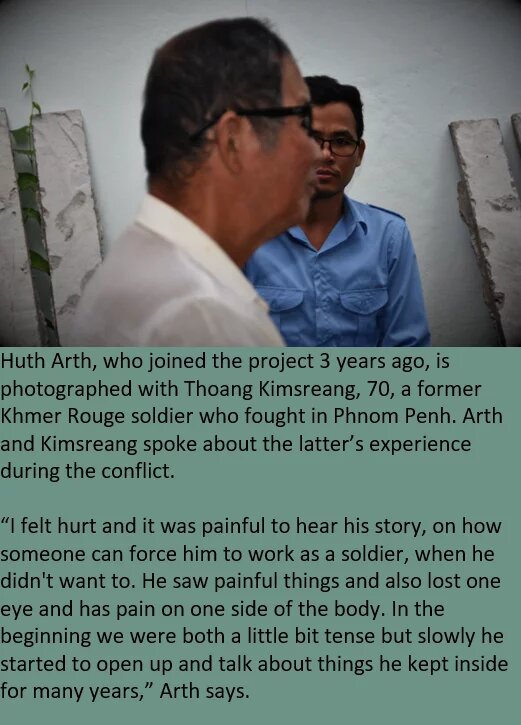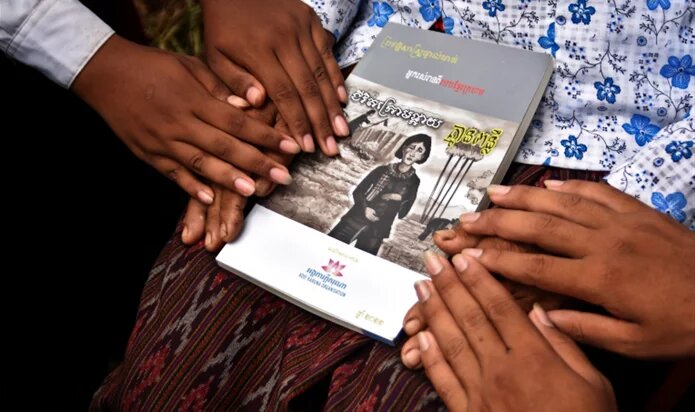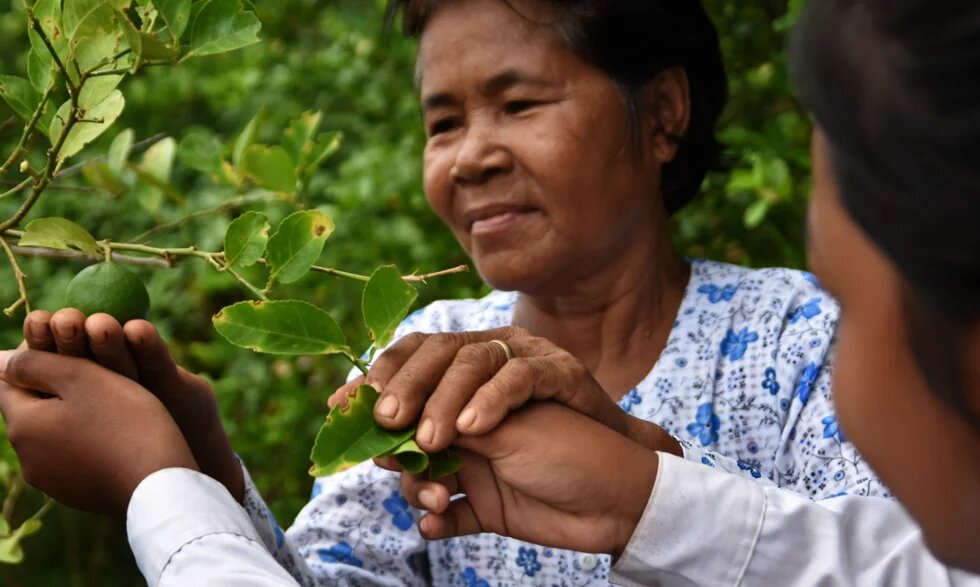
As Cambodia closes in on 50 years since the fall of the Khmer Rouge regime, generational trauma persists in many households and the country continues to maneuver the legacy of the mass atrocities committed during the 1970s.

The peace-building process, while often co-opted for political purposes, is still a work in progress in Cambodian communities and villages, according to organizations like Kdei Karuna. The Cambodian non-governmental organization works closely with ethnic Khmer, Cham and Vietnamese communities in 22 provinces, including Kampong Thom, Kratie, Tboung Khmum and Phnom Penh, to facilitate intergenerational dialogue, documentation and outreach to move towards an inclusive and peaceful Cambodia.
The dialogue process used by Kdei Karuna is based on the concept of oral history research and intergenerational dialogue sessions where teachers, students and community members interact with the yey or ta — the grandparents or elders — of the village by listening to their stories, which are often previously untold. The dialogue intersects issues of minority discrimination, sexual and gender-based violence, and youth engagement through a storytelling process that encourages conversations and activism.
Ear Lath was in Chi Kreng district, Siem Reap, during the Khmer Rouge regime and lived in a farming cooperative under very harsh conditions. Her parents were accused of being traitors, her brother forcibly recruited to work for the regime and she does not know what happened to her other siblings or family.
Using her family history, Lath interacted with Khmer history teachers and their students as part of oral history sessions in 2022. She spoke freely, often through the emotions that resurfaced, about her life in the 1970s and how she has lived with the experiences of the last 50 years.
Hear what Lath has to say about her experiences after interacting with community members during one of these dialogues:
“I am fine now and feeling okay. I don't often think about how I was forced to relocate or live with a lack of food. But I keep thinking about my mother who I saw being killed in front of me. Sometimes I still have nightmares.”
“I have told my family before [about these experiences] but in not as much detail as I did now during this dialogue. My family wasn’t fully convinced and they didn't really want to listen.”
“With these students, I felt more comfortable as they really wanted to listen to what I haven’t shared with my own family. In the end, I feel very relieved.”
“I want to tell the young generation to try their best for this not to happen in the future. It is all on them and these kinds of conversations should continue to happen in our community.”
This article is an excerpt from "Profiles of Courage." Click here for the full reading.
